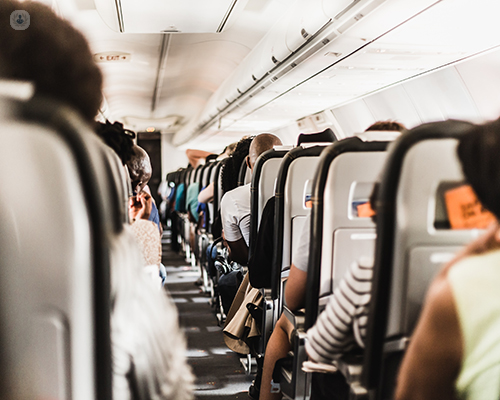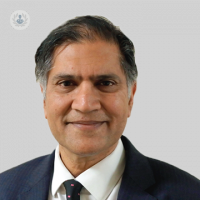Fullness in the ears – what does it mean?
Escrito por:Have you ever experienced that feeling of fullness in your ears? It is a common symptom that can be surprisingly difficult to diagnose. This is because the ear is supplied by the same nerves as many other parts of the head and neck, and pain or sensations that are actually coming from other parts of the head can actually feel like it’s from the ear. Professor Manohar Bance, a leading otologist, describes some of the more common causes of fullness in the ears.

Eustachian tube problems:
The Eustachian tube runs from the back of the throat to the ear, and when you swallow it opens and allows air in behind the eardrum. Having air on both sides is important for the eardrum to vibrate.
- ET not opening enough:
If this Eustachian tube doesn’t open normally, negative pressure can build up in the ear and suck the eardrum in a little, and sometimes even cause fluid to build up behind the eardrum. This can also happen during flying (especially landing) for some people. This is common after a cold or flu, and can clear up in 2-6 weeks, but can persist in some people. We can measure the middle ear pressure, and if it is negative, we can either prescribe a device to make you “pop” your ear, make a small hole in the eardrum to equalise the pressure, or if needed long-term, we can put in a grommet or ventilation tube.
- ET too open:
The ET should actually be closed at rest. If it stays open, you might hear your voice booming in your ears, or hear your breathing (a bit like Darth Vader) in your ear. This is called patulous Eustachian tube. This can also cause a pressure sensation in your ear. We can check if your eardrum is moving with your breathing if the pressure is reaching the eardrum, and try various ways to reduce this symptom, but this is not always an easy condition to treat.
Temporomandibular Joint (TMJ or jaw joint) or other muscular problems:
The jaw joint is right in front of the ear, and if you are a tooth-clencher, tooth grinder or have misalignment of the jaw joint, this can cause stress on the muscles around the jaw joint that open and close it. This can also feel like fullness in the ear. We can check for this tenderness, but would send you to dental colleagues for treatment of this. Other muscles around the jaw joint can also be affected, such as the ones at the sides of your mouth that attach to and move the jaw.
Inner ear problems:
Inner ear problems can also cause fullness in the ear. This is found particularly in diseases such as Meniere’s Disease, which causes spinning attacks, fullness, hearing loss and ringing or rumbling in the ear. This can be diagnosed with hearing tests and a review of your symptoms. Again, treatment is not always easy and has to be tailored to each patient.
Other causes:
It is not uncommon for us not to be able to be find the cause for the fullness, as it is such a difficult symptom to localise in some patients. Sometimes we think it might be an inflamed nerve (neuralgia), migraine, or muscle tension around the ear, but we can at least exclude something serious.
Have you been experiencing fullness in the ear? Book an appointment now with Professor Manohar Bance to have it investigated.


